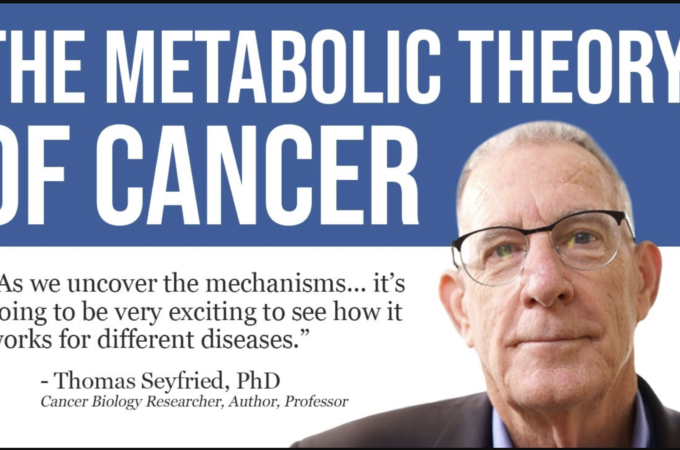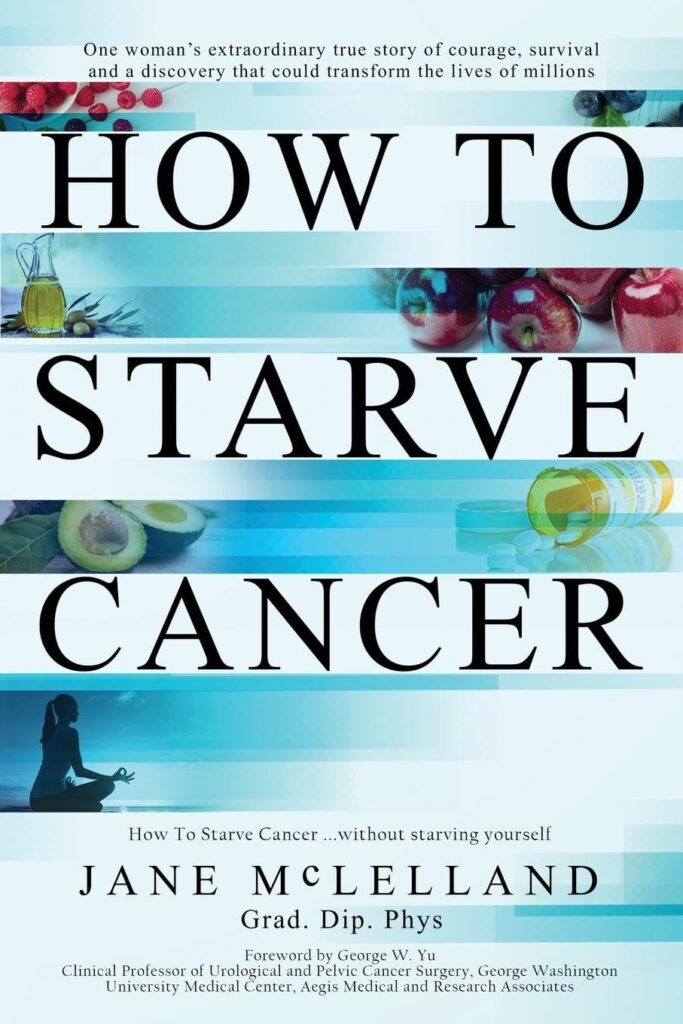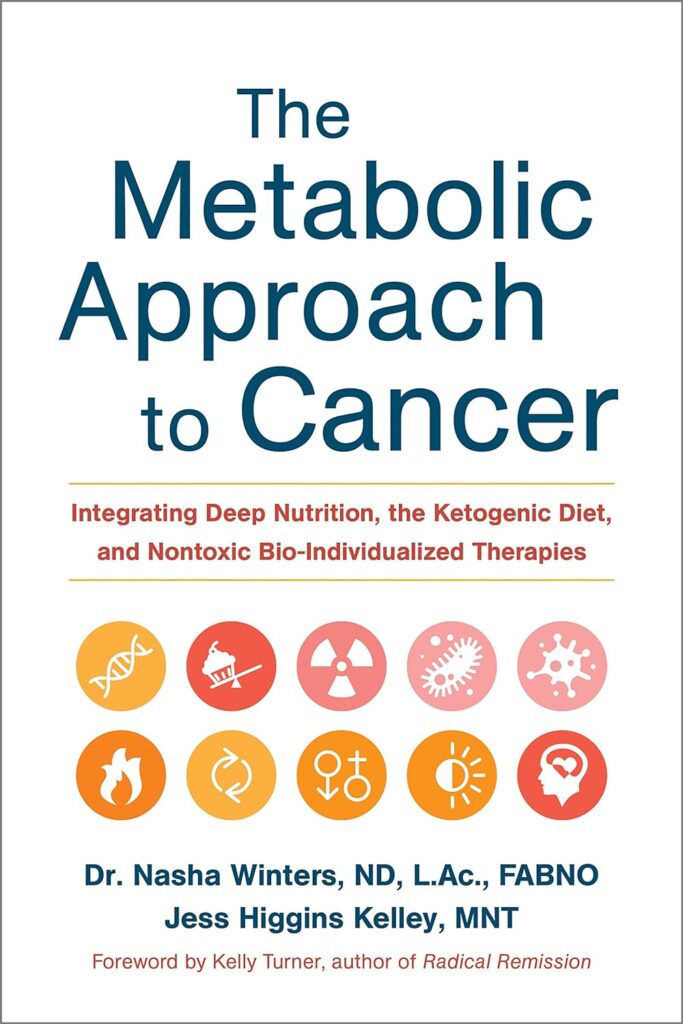
Seyfried, Joe Tippens, Fenbendazole, Artemisinin & more
Cancer Evolution Documentary
The newest hope for cancer may be one of the oldest.
CANCER/EVOLUTION is an award-winning 4-part docu-series on the metabolic theory of cancer and emerging associated therapies.
If you would like to learn more about the alternatives to the modern scientific agenda surrounding Cancer and its treatments, please check out the cancer revolution documentary and the summit which will host some of the greatest minds behind metabolic approaches to cancer treatment!
Episode 1: Donate and stream now.
Christy Kesslering, MD – Eat This Way
Video: Radiation Oncologist: EAT THIS WAY to Prevent & Fight CANCER | Dr. Christy Kesslering
Thomas Seyfried, PhD
Video – Metabolic Therapy for Cancer Patients
Video – Cancer as a Metabolic Disease
Video- Here’s How to Poison Tumors for Good
Pablo Kelly, Glioblastoma
Pablo’s Journey through brain cancer, glioblastoma
Fenbendazole
Video: FENBENDAZOLE & ARTEMISININ I The Common Sense MD I Dr. Tom Rogers
Video: Can Fenbendazole and Mebendazole Be Repurposed During Cancer Treatment?
Joe Tippens
Video: Joe Tippens: Cancer Hope Via Fenbendazole
3 Main Mechanisms In Which Fenbendazole Kills Cancer
Video: Fenbendazole & Artemisinin, The Common Sense MD, Dr. Tom Rogers
Artemisinin (Wormwood)
From DoctorSaputo.com: This herb had been used by the Chinese for thousands of years for treating malaria before it was lost. It was rediscovered in 1970 and has slowly returned to clinical use, especially for drug resistant falciparum malaria, but also for treatment of most cancers.
Artemisinin contains two oxygen atoms hooked together that break down in the presence of iron, by creating very reactive free radicals that kill malaria parasites and cancer cells. Both cancer cells and malaria parasites sequester iron, accumulating as much as 1000 times what normal cells store. Giving artemisinin to people with malaria or cancer results in destruction of these abnormal cells and leaves normal cells unaffected. Artemisinin is a cancer bomb!
Generally, chemotherapy is toxic to both cancer cells and normal cells. In the case of artemisinin this is not true; only the cancer cells are damaged. In more than 4000 case studies, no significant toxicity from artemisinin has been found, which makes it far different than conventional chemotherapy.
Results from clinical trials are conspicuously absent. However, there a numerous individual case reports suggesting that artemisinin works in vitro (in test tubes) and in both animals and human beings with far advanced cancer. I would suggest reviewing the work of Christina L. White’s two part series on Cancer Smart Bomb.
There are three forms of artemisinin: artemisinin, artesunate, and artemether. All are absorbed well after oral intake and cross the blood brain barrier. They are best absorbed on an empty stomach. The intestine builds up resistance to absorbing, so it is wise to only take the drug for a few days and then stopping for a few days as this resistance is reversible.
Artemisinin and its derivatives offer the possibility of using a non-toxic form of chemotherapy that is inexpensive and readily available. Because of its excellent safety profile, it should be a consideration for cancer treatment when conventional treatments have failed or when people refuse conventional therapies
Video: Artemisinin: A Cancer Smart Bomb by Len Saputo, MD
Video: Artemisinin Part 2: How to Use It by Len Saputo, MD
Dr. Saputo’s Artemisinin downloads
High Dose Melatonin
Melatonin is an antioxidant that inhibits cancer cells. As we age, our ability to produce melatonin drops. People who routinely take melatonin enjoy antioxidant and anticancer benefits. Melatonin helps the body repair and regenerate.
The potential influence of melatonin on mitochondrial quality control: a review
- Melatonin is a natural endogenous hormone. In mammals, melatonin is produced in many organs such as the pineal, small intestine, retina, brain, liver, thymus, kidney, skin, and other tissues.
- In addition, melatonin is involved in the regulation of biological rhythms, free radical scavenging, anti-aging, anti-cancer, immunity and other aspects.
- Melatonin protects against mitochondrial injury.
Melatonin in Cancer Treatment: Current Knowledge and Future Opportunities
- Melatonin is considered as a cell protector and not only a hormone.
- Studies reported essential effects of melatonin in many pathways, including oxidative stress, immune modulation, and hematopoiesis.
- Additionally, a large number of studies confirmed the anticancer and oncostatic (halts the spread of cancer) effects of melatonin.
- Melatonin inhibits DNA damage that initiates cancer.
- Melatonin slows the proliferation of cancer.
- Melatonin prevents metastasis.
Video: High Dose Melatonin Therapy, An Ideal Adjuvant Anti-Cancer Therapy – Dr. Frank Shallenberger
Video: The Effects of Melatonin on Cancer – Nathan Goodyear, MD
Melatonin, mitochondria, and the cancer cell
Melatonin – The Antioxidant Powerhouse for Fighting Cancer (short video)
For cancer, take melatonin, 60mg, four times a day.
It is incorrect to say that taking exogenous melatonin will interfere with the body’s own production. Melatonin from the pineal gland is controlled by the nervous system, not the endocrine system. Melatonin is antiviral, take 120mg at bedtime.
IV Vitamin C
High-dose IV vitamin C is best known as a cancer-fighting measure. It may block tumor growth and therefore help fight cancer and prevent its progression.
High-dose vitamin C can work synergistically alongside many types of chemotherapy. Additionally, high-dose vitamin C may help relieve the side effects of chemotherapy.
What is the benefit of taking high-dose IV vitamin C versus oral tablets?
Taking vitamin C intravenously allows you to take in far more of the vitamin than you’d be able to through the oral route.
In addition, when you receive IV vitamin C, it goes directly into your bloodstream. Oral tablets must travel through your digestive system, which means you lose some of the vitamin during digestion.
You absorb 70-90% of vitamin C taken orally, but that absorption only applies to moderate doses. Once you take over 1 gram orally, the absorption rate plummets to 50%, and the remainder of the vitamin is unmetabolized and lost in your urine. So, IV delivery is unquestionably the most efficient way to absorb and get benefits from high-dose vitamin C. [source]
Apricot Kernels
The pit of the apricot contains apricot seeds, or kernels, which are the carrier of amygdalin.
In addition to antitumor properties, amygdalin has been shown to have antioxidative, antibacterial, anti‐inflammatory and immunoregulatory activities. (source) A review study concluded that amygdalin showed beneficial effects on different body systems besides its anticancer activity, renal fibrosis inhibition, antiasthmatic action, improves immune function and antiparkinsonian effect. (source)
Read the article: DO APRICOT SEEDS HAVE HEALTH BENEFITS AND ANTICANCER BENEFITS?
Dandelion Root
Dandelion Root
Studies support the many benefits of dandelion:
- anti-inflammatory
- anti-oxidative
- diuretic activity
Dandelion Root and Cancer [source]
- selectively inhibits cancer cell growth
- strong anti-cancer activity, induces apoptosis (cancer cell death)
- inhibits the ability of colorectal cancer cells to migrate and invade, and therefore metastasize to secondary locations
- selectively reduced the metabolic activity of aggressive colon cancer cells, irrespective of their p53 status.
How to use Dandelion Root
You can make tea with the dandelion roots. I purchase from Mountain Rose Herbs or my local herb shop.
- Steep about one tablespoon of chopped dried root for 30 minutes in five ounces of boiling water.
- For bigger health challenges, add 1 cup of the dried root to a quart jar and add hot, not boiling water. Cover and let sit overnight. Strain and drink.
Hydrogen Water
Hydrogen, when consumed or inhaled, acts as a powerful antioxidant, reducing oxidative stress and inflammation in the body. It can enhance cellular function, improve energy metabolism, and support overall health. Its small size allows it to easily penetrate cells, making it an effective therapeutic agent with potential benefits for various physiological processes.
Pro Hydrogen Water Bottle from IonBottles.com
- Glass bottle, not plastic.
- Proton Exchange Membrane (PEM) is a critical component of this hydrogen water bottle. It uses electrolysis to produce hydrogen-infused water. The PEM is a thin, semi-permeable membrane that separates the anode and cathode chambers in the electrolysis chamber
- Solid Polymer Electrolytic (SPE) – Platinum coated SPE is a type of electrolyte composed of a solid polymer material that facilitates ion conduction. SPEs are ideal for liquid electrolytes due to the low flammability, excellent mechanical properties, and high ionic conductivity.
- Negative Ion Electrolysis is used to produce hydrogen-infused water. In negative electrolysis, the anode is made of a material that promotes the production of oxygen gas (O2) and hydrogen ions (H+) in the water, while the cathode produces hydroxide ions (OH-).
- Removes toxic chlorine and ozone gas
- Self-cleaning function cleans the plates of mineral build up
- Built-in cannula inhaler ability
- USB cable to charge bottle
- 12-month warranty
- Smart self-cleaning mode
- 14 ounce capacity (414 ml)
- Generates up to 3PPM in 10 minutes
Benefits
- Powerful antioxidant
- Reduces oxidative stress
- Supports healthy aging and cognitive function
Research and Studies
Mistletoe Therapy
Video: Mistletoe and the Emerging Future of Integrative Oncology – Dr. Nasha Winters
Book: Mistletoe and the Emerging Future of Integrative Oncology
PEMF
Pulsed electromagnetic therapy (PEMF) is used to help people generate energy, healing, and wellness at the cellular level. By using pulsed electromagnetic fields to restore balance, PEMF therapy allows the body to naturally heal itself by providing it with the power of pulses that penetrate deep into tissues and cells. It effectively treats many health issues, including chronic pain, sleep disturbances, depression, arthritis, and more.
PEMF cancer-related studies are mainly classified as inhibiting cell proliferation, directly killing or inducing apoptosis, altering cell cycle, affecting cellular pathways, etc.
Hyperbaric Oxygen Therapy (HBOT)
Video: The Benefits of Hyperbaric Oxygen Therapy (Eric Berg)
Video: 5 Reasons NOT To Do Hyperbaric Oxygen Therapy (HBOT USA)
Books
Recommended
-
Dandelion for Liver Support and Health BenefitsJuly 20th, 2024
-
Modified Citrus PectinJuly 11th, 2024
-
Bentonite Clay Mask for Face and ArmpitsJuly 8th, 2024
-
Two Supplements for Erectile DysfunctionJune 30th, 2024
















